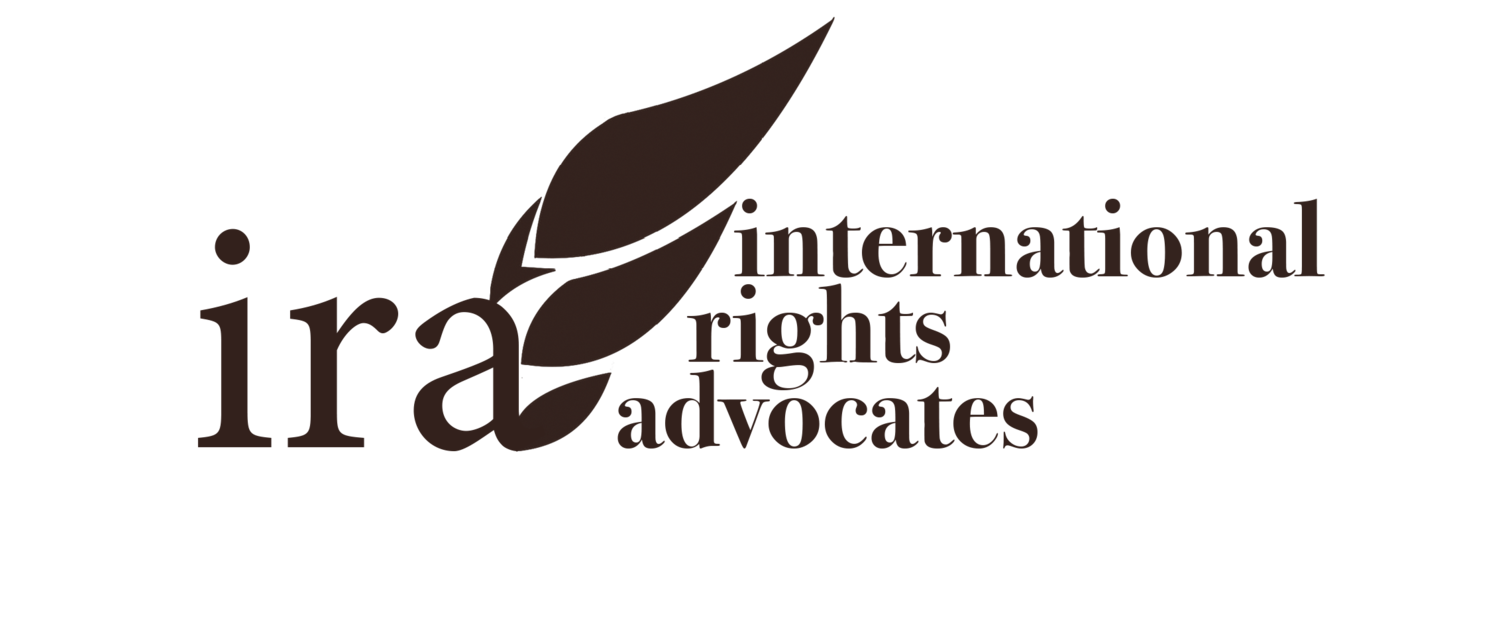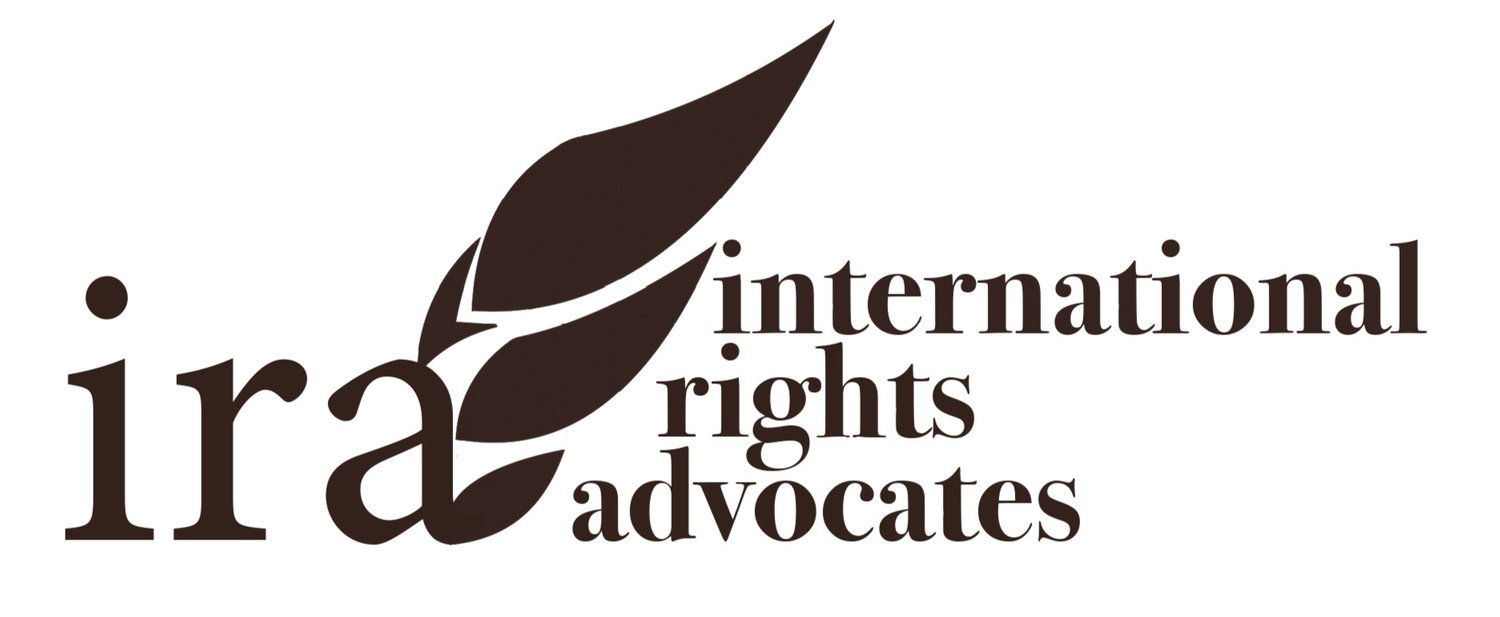On behalf of 13 Bangladeshi migrant workers who were trafficked into Malaysia and forced to work at a disposable glove manufacturing plant owned by Brightway Group, IRAdvocates filed suit in the U.S. federal district court for the District of Columbia against Ansell and Kimberly-Clark Corporation (“KCC”), two major Brightway customers.
The Plaintiffs seek to represent a class of the thousands of other workers who, like them, were subjected to the same systematic trafficking and forced labor scheme that Brightway utilized to staff its facilities. This is just one of many products produced in Malaysia under a notorious system under which Malaysian “recruiters” use illegal tactics to obtain cheap labor for Malaysian factories.
The case is based on the Trafficking Victims Protection Reauthorization Act (“TVPRA”), 18 U.S.C. § 1595 et. seq., which requires only that Ansell and KCC were in a business relationship with Brightway, knew or should have known of trafficking and forced labor of the Brightway workers, and received a benefit from Brightway’s unlawful practices.
Both Ansell and KCC admit they had a long-term contractual relationship with Brightway. Both companies were repeatedly told of and publicly acknowledged the issues of forced labor and trafficking at Brightway. And both companies received low-priced latex gloves from Brightway made possible by the cheap labor of workers, including the Plaintiffs, who were victims of human trafficking and forced labor.
The Plaintiffs were coerced into paying high recruitment fees to third-party recruitment agencies in Bangladesh to secure a job at Brightway. They each had family members who were financially dependent on them, and the traffickers offered false promises of a safe, well-paying job. Once the workers arrived at Brightway in Malaysia, the reality could not have been more different than what they were promised. Upon arrival, the Brightway management team seized each worker’s passport, restricting their ability to leave the premises and country. The individuals were forced to work 12-hour shifts with few or no rest days. They were constantly subjected to physical and verbal abuse by their supervisors; they were beaten, yelled at, threatened, and prohibited from accessing medical care.
The abhorrent conditions faced by these Plaintiffs extended from the factory to the Brightway-provided hostel, which was located on the same grounds. The individuals were forced to sleep in a single room with up to 70 other workers. Some of them did not even have their own bed or pillow. The large group of workers shared only a couple of restrooms, which were unsanitary and poorly maintained.
The hostel included a canteen, which provided the only food that the workers were allowed to eat. The high cost of the canteen food was deducted from the workers’ salary, and they received minimal, barely edible food. Workers were often left hungry as they were prohibited from cooking their own food or bringing other food into the hostel.
All of this inhumane treatment– recruitment fees, poor living conditions, passport retention, excessive hours, forced overtime, and restrictions on movement– are clear indicators of forced labor as defined by the International Labor Organization.
In December 2021, U.S. Customs and Border Protection (CBP) issued a Withhold Release Order (WRO) against Brightway Group collectively, following findings of forced labor at their Malaysian glove manufacturing plants. The WRO prohibits Brightway from shipping its latex gloves to the U.S. market. There remains an active WRO against Brightway Group collectively, which means that the company has not yet proven to CBP that it has eradicated forced labor in its supply chain.
The Plaintiff/workers’ legal case against Ansell and KCC is exceptionally compelling as the U.S. government, through CBP, has found the conditions the workers endured at Brightway constitutes forced labor under U.S. and international law. Ansell and KCC will be held accountable for the use of forced labor in their supply chains as Brightway was a major supplier to each of them. The workers and their attorneys have provided ample evidence that Ansell and KCC were intimately aware of trafficked and forced labor in their supply chains, but refused to adequately address such violations until forced to do so by CBP’s WRO. Thus, Ansell and KCC knowingly profited and benefitted from trafficking and forced labor in their supply chains for years, including forced labor performed by the Plaintiffs in this case.
In their Modern Slavery and Sustainability statements, Ansell and KCC claim to have programs directed at addressing and reducing trafficked and forced labor in their supply chains. However, upon a closer look, it is clear that the programs are nothing more than shams to appease consumers and regulators.
The workers now seek damages for the corporations’ role in violations of their basic human rights. They demand full reimbursement of the significant recruitment fees they were compelled to pay the third-party agencies in Bangladesh that have direct ties to Brightway. They also seek damages for enduring trafficking and forced labor conditions during their time working at Brightway and manufacturing gloves for Ansell and KCC.
Now that the Complaint has been filed in federal court, the companies must be formally served with the complaint and then they will have 30 days to respond. Before filing the complaint, IRAdvocates offered the chance to mediate with both companies. Neither company accepted the offer. This is a case that should have been easily resolved because the workers all suffered from the same systematic practices. They sought reimbursement for the exorbitant recruitment fees they were required to pay and reasonable compensation for enduring trafficking and forced labor.
Shortly before this complaint was filed, Plaintiffs were reimbursed their recruitment fees by Brightway as part of a “program” to address the issues in the CBP findings, but this does not change that until then the recruitment fees were part of a system of debt bondage all Plaintiffs endured from the very start of their employment, nor does it change that the other aspects of Brightway’s debt bondage system continue, including massive and unjustified deductions for food, lodging and penalties. Further, neither Brightway, KCC or Ansell has done anything to address or remediate the suffering Plaintiffs and the class members endured while being trafficked and forced to work at Brightway. Subjecting a person to forced labor is a crime around the world precisely because this form of modern slavery is a serious human rights violation that causes great suffering and distress in the person who is forced against their will to perform labor under brutal conditions. All of the Plaintiffs and class members suffered grave injuries as a result of being subjected to forced labor at Brightway.
IRAdvocates will now do whatever is necessary and possible to obtain justice for these brave workers who have come forward to end the systematic abuse of foreign workers by the Malaysian glove industry for the benefit of KCC and Ansell. Further updates will be posted on our site.
🗞️ 🚩 08.20.2022 CASE UPDATE:
Ansell and Kimberly-Clark Sued in US Federal Court by Trafficking and Forced Labor Victims from Malaysian Glove Company
Click here to read on.
Case Details
Docket No. 22-2353 Op. Below Federal District Court for the District of Columbia Argument N/A Opinion N/A Vote: N/A Judge: N/A Term: N/A
Holding
Pending
Judgment
Pending
UPDATE:
The parties are awaiting their trial to be scheduled.
Documents
What People Are Saying
— Reuters
— The Sydney Morning Herald
— Malaysia Now
How you can help.
Contribute to our work by donating.
Advocate by reaching out to the companies being sued.
Sharing on social media using our toolkit








